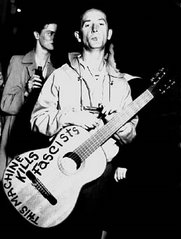
It has been some time since I have seen a film so unassumingly poignant.
Old Joy is an exceedingly simple tale of old friends Will and Kurt who reunite to go on a hiking trip into the woods. Will is a soon to be father; Kurt is a...well as far as I can tell Kurt is a free spirit. And, honestly, this two sentence synopsis is the extent of both the narrative and character development of Old Joy. Interested yet?
The power of this film is not in the story that it tells. The power of this film is not in the characters it portrays. The power of this film is actually, come to think of it, not even within the film itself. It is in the familiarity of every moment that occurs between and around Will and Kurt; and, this familiarity originates within the viewer.
With a melancholy pace and a detailed perception of environment the feel of the movie is akin to the feeling of coming home. If you now live somewhere away from your hometown you may know this feeling. As soon as you hit that strecth of interstate where the median and the side roads begin to look recognizable you know you are getting close. The town where you were young is, just like you, older and it, too, has changed. Store fronts have evolved, your friend doesn't live out behind the elementary school anymore, the old man leaning on his cane doesn't stand out in front of the BP. You notice things that were very possibly present when you were a kid that you never noticed then. It almost hurts. This place holds a fond place in your memories; it is a joyful memory. But, its not exactly right anymore, not exactly the same, it's changed. It's an old joy.
Will and Kurt are confronting this phenomenon of a rapidly diappaearing past. Kurt and Will don't seem to connect the way they once did. Kurt even remarks in a hash-induced rant that things have changed between them. Will assures him they are fine. And, they are both right. Yes, things have changed, time does that to people. Friends and family change in your absence, ideals and dreams come and go and morph. The things about your best friend growing up that made him your best friend may wax or wane. But, the thing is, you and your friends and your family are still fine. This is what Kurt and Will find out. They don't have has much to talk about, they both have changed, they both have lives of their own, but they both will always have that old joy to revisit.




